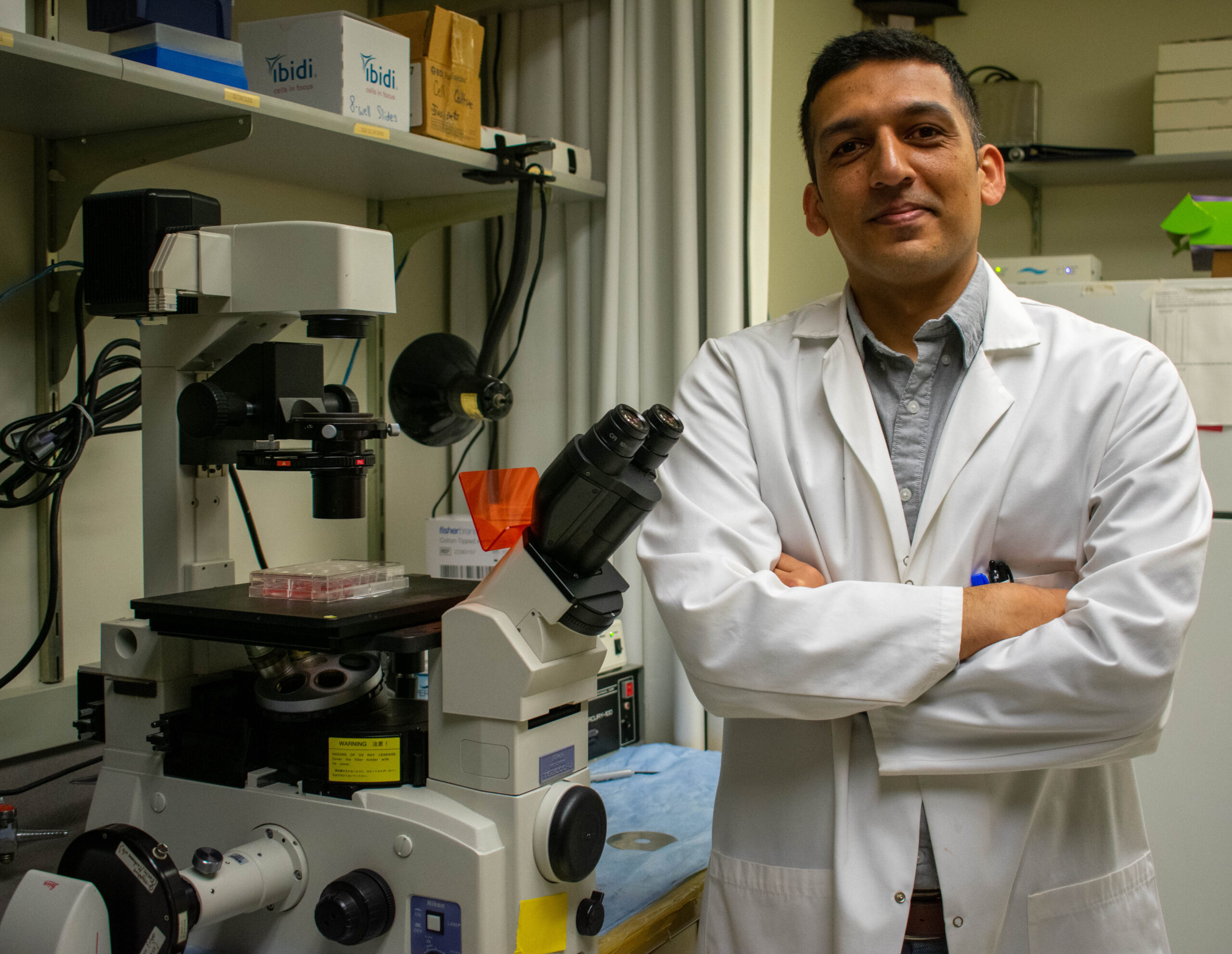Can you share a bit about your early life and what sparked your interest in research, medicine and orthopaedics/bioengineering?
I was born and raised in Nepal. I have been interested in science since my early childhood. The unlimited potential that science offers has always excited me. My passion and thirst for scientific knowledge and discovery has followed me into adulthood. I completed my bachelor’s degree in physical therapy from India. After my undergraduate, I got an opportunity to pursue my master’s (MS) and Ph.D. degree from South Korea. Academic training and research experience during my MS and Ph.D. have provided me with an excellent background in multiple biological disciplines including molecular biology, microbiology, biochemistry, and immunology. There are so many scientific tools to study the molecular targets and mechanisms involved in several diseases. That made me realize that I wanted to pursue a career in science. I recently joined the Ferguson Lab as a postdoc associate, where I was introduced to orthopaedic research, specifically spine research by Dr. Nam Vo, Dr. Gwendolyn Sowa and Dr. Joon Lee. They have provided me with constant support and guidance. Their expertise, professionalism and dedication have made a big impact on my perspective on things, and I am truly grateful for the opportunity to work in their team.
What were some pivotal moments or influences during your education that shaped your research interests?
I have had great support and guidance from my mentors in South Korea. I feel fortunate enough to get great support from my mentors in Fergusons lab, which is helping me to shape my research interest as well as my overall career.
Speaking of scientific discovery, the concept of immunometabolism and its significance in host-defense during bacterial infection as well as inflammatory condition was fascinating for me. I was involved in the projects where we identified several molecular targets such as Mitofusin 2 and Gamma-aminobutyric acid A receptors (GABAAR) involved in the coordinated orchestration of autophagy, inflammation and immunometabolism, which was an exciting finding and increased my research interest in the field.
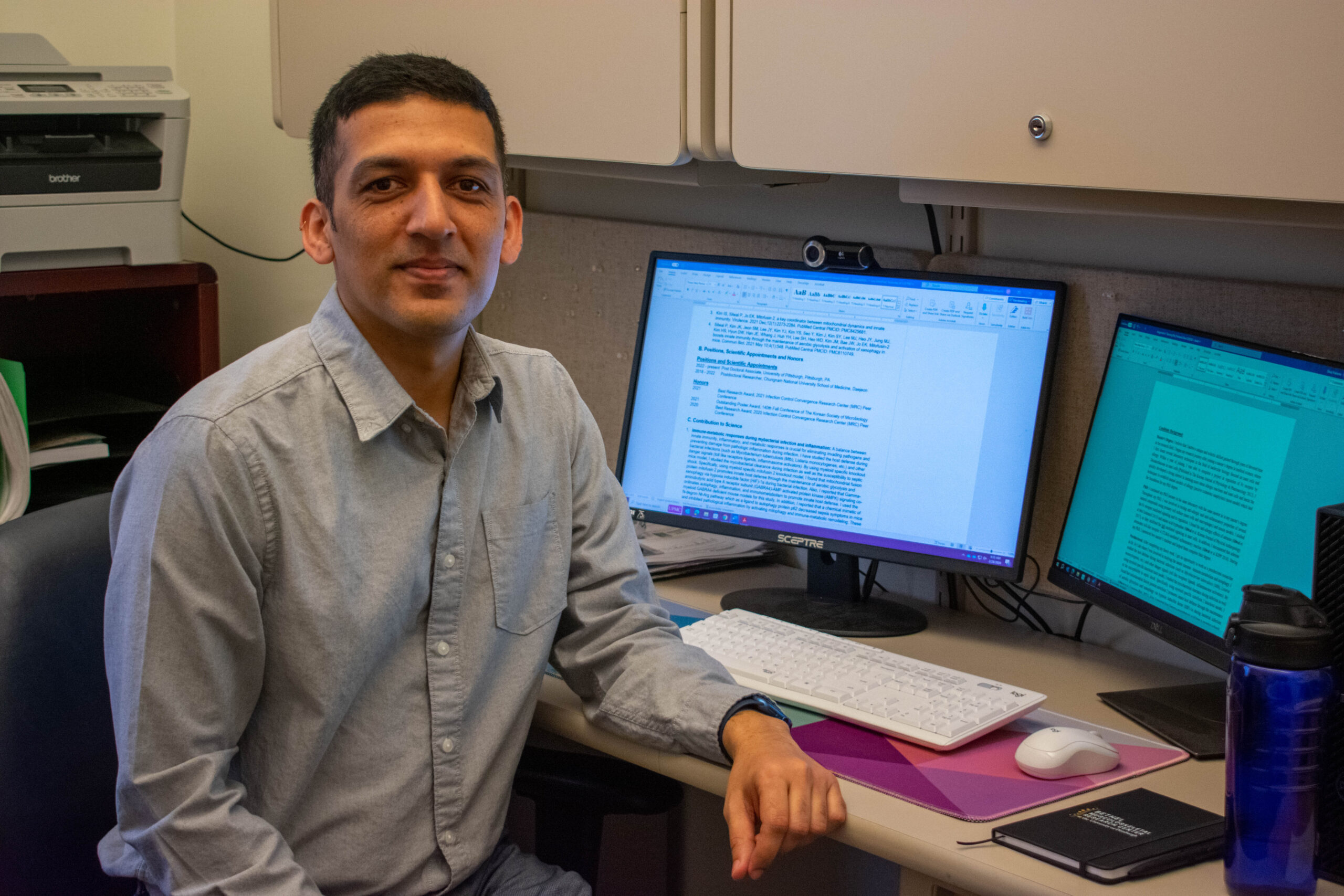
What were your initial career goals when you started your journey in research, and how have they evolved over time?
Until my master’s degree, I was undecided about my career goal. Once I started my Ph.D., I was sure to follow the academic pathway. During my early career, I was influenced by the fact that we could establish animal models to test therapeutics effects of drugs or to study the molecular mechanism involved in several diseases/pathologies. I participated in testing several drugs/molecular mechanisms in mouse model of allergy, sepsis, and infection.
During my early postdoc career in South Korea, I was guided by Dr. Eun-Kyeong Jo, who is a pioneer scientist in the field of innate immunity and autophagy. She has selflessly dedicated a significant portion of her life to guiding and mentoring young researchers such as myself. As I am new to the academic environment in the USA, I am trying my best to learn and achieve my goal of successfully transitioning from a trainee to an independent researcher. With the help of my mentors, I am learning about grant writing, networking, and mentoring which is helping to boost my confidence to achieve my career goal. Their mentorship is invaluable to me.
Are there specific achievements or milestones you aspire to reach in your career?
As a researcher, my goal is to investigate the molecular pathways and mechanisms to identify novel drug targets and therapeutic agents against diseases related to aging and inflammation. As intervertebral disc degeneration and related back pain is a significant global public health burden, continuing my career in the academic research field, I wish to make a significant contribution in understanding the molecular mechanisms involved in the disease progression which can contribute to the development of translational research that bridges the gap between basic science research and clinical application ultimately benefiting patient care.
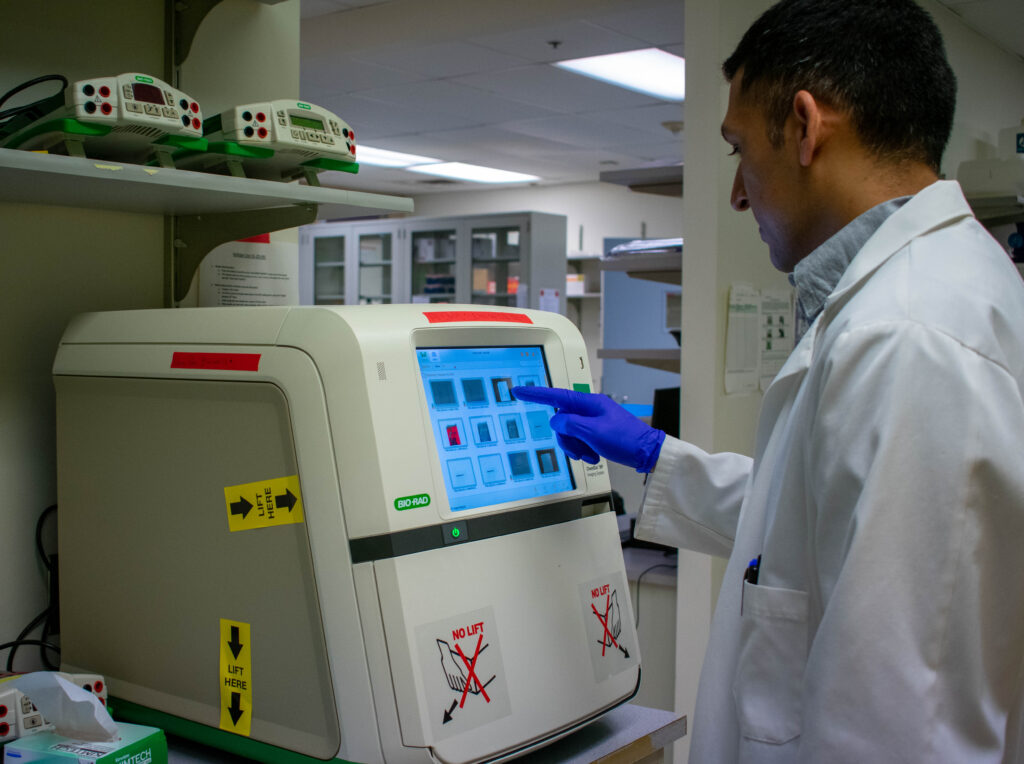
Could you provide an overview of your current role at the BMRC and responsibilities in your research position?
Currently, I am an international postdoctoral associate in the Ferguson Laboratory for Orthopaedic and Spine Research under BMRC. I am working on ongoing research projects involving ligamentum flavum hypertrophy and the role of autophagy and cellular senescence in intervertebral disc degeneration. I conduct animal procedures and analyze molecular and cellular changes in the disc relating to intervertebral disc degeneration and low back pain.
By using several techniques such as primary cell isolation, cell and tissue culture, and gene expression analysis, I am working towards identifying viable molecular and cellular targets to support the development of biological and cell-based therapies for intervertebral disc degeneration and low back pain. I also write manuscripts.
Research can be demanding. How do you maintain a balance between your professional and personal life?
As mentioned earlier, I moved to the USA from South Korea recently with my wife and 7-year-old son. It was tough in the beginning for all of us to adjust to the new environment, especially for my son. He was in a new school with a new language, making new friends and so on. He adapted quickly, however, and is well-settled now. With great support from my mentors including Dr. Vo and Dr. Lee, and members of the Ferguson lab, my mom in Nepal, I can handle the wellbeing of my family and settling well here in Pittsburgh. In addition, my wife is a research scientist which makes it easier for me to talk and discuss with her regarding my career goals and problem solving related to my research work.
Are there any recent developments or breakthroughs in your field that particularly fascinate you?
Development of animal models to induce disc targeted elimination of target genes to study the cell specific mechanisms in aging and intervertebral disc degeneration is exciting moving forward in the field of spine research.
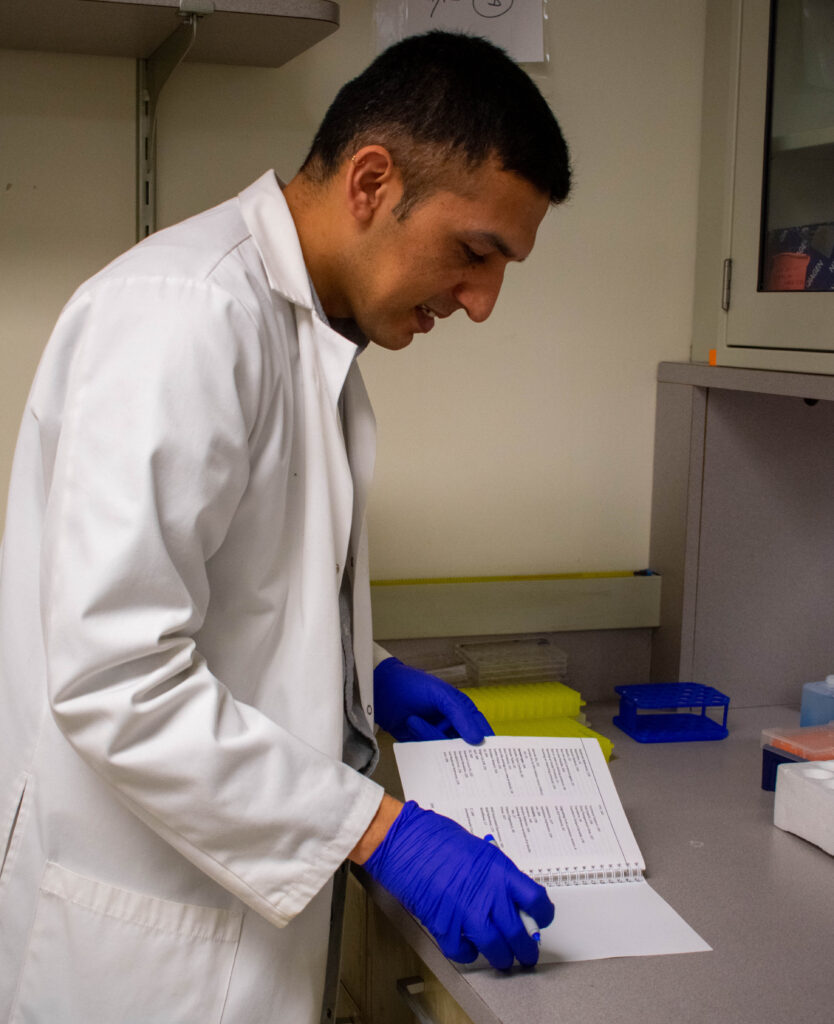
Are there specific areas within your field that you are particularly interested in exploring further in the coming years?
With the recent development of high-throughput, cutting-edge technologies including proteomics, transcriptomics, genomics, metabolomics, epigenomic, etc., we are hoping to identify important molecular markers or targets involved in spine disorders for the discovery of novel therapeutics. In the future, I hope to see progress in gene and cell-based therapy for the treatment of intervertebral disc degeneration and other spine disorders.
